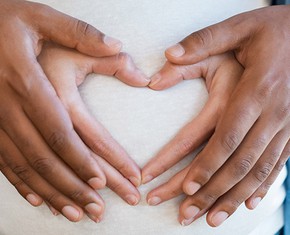The views expressed in our content reflect individual perspectives and do not represent the authoritative views of the Baha'i Faith.
Lots of essays, blogs, books, and podcasts give us advice about how to live and be happy in our earthly life – but does anyone ever think about how to die happily?
The notion of physical being in our culture seems so strong that many choose not to think about death, much less talk about it.
For Baha’is, though, life and death both portray a connected world. Both are important. Both need to be meaningful and purposeful. Baha’is believe death is a step to a new life, that the soul continues its life after the departure of its bodily temple, and that human spiritual growth continues in the next world. In fact, Baha’is await the end of this physical life joyfully.
In his book The Hidden Words, Baha’u’llah, the prophet and founder of the Baha’i Faith, said “I have made death a messenger of joy to thee.”
RELATED: How to Die Without Fear: The Positive Death Movement
After the loss of my father, I grieved and suffered, so I turned to writing my recollections of his life to deal with my loss. He went through many hardships in his life because of his love for the Baha’i Faith, including losing his vision because of torture during his solitary confinement in Evin Prison in Tehran. But despite being tortured and blinded, my father never lost the joy of life. Like multitudes of persecuted Baha’is, he too never accepted the mantle of victimhood, and never let his heart be seized by resentment towards his oppressors. He died in utter peacefulness.
I asked myself, over and over, how he could stay so resilient and joyful until the last moments of his life despite all the suffering he went through?
Like many, I yearn to possess that inner peace at the end of my earthly life! But how?
In my search for answers I came across another passage from The Hidden Words of Baha’u’llah, which reveals two concepts of how to live and how to die:
O Companion of My Throne!
Hear no evil, and see no evil, abase not thyself, neither sigh and weep. Speak no evil, that thou mayest not hear it spoken unto thee, and magnify not the faults of others that thine own faults may not appear great; and wish not the abasement of anyone, that thine own abasement be not exposed. Live then the days of thy life, that are less than a fleeting moment, with thy mind stainless, thy heart unsullied, thy thoughts pure, and thy nature sanctified, so that, free and content, thou mayest put away this mortal frame, and repair unto the mystic paradise and abide in the eternal kingdom for evermore.
I look at this passage from The Hidden Words as a recipe for a joyous, happy, and fulfilling life and death. It can serve as a blueprint for a spiritual soul to merge the journey of this life with the next.
In this quotation, Baha’u’llah takes the searching soul into his confidence and unveils a remarkable spiritual truth — the effect of our behavior in this world on the end of our lives and our passage to the afterlife.
The first part tells us what paths not to take, what behaviors not to embark on, and what to diligently avoid. Baha’u’llah continues with the consequences of this pattern of negative behavior, which he warns us not to adopt. He reveals that speaking evil about others comes back to us. Magnifying other’s faults ends up with the exposure of our own faults – the faults we do our best not to divulge.
Then Baha’u’llah testifies that refraining from each of those acts shifts the lens through which we look at the world. Instead, we can live our lives – which by the way, are very, very short – with sterling qualities and virtues. So because of not doing certain acts, our mind, heart, thoughts, and nature, become stainless, unsullied, pure, and sanctified. These conditions are the consequence of not doing rather than doing.
The question remains: if we “hear no evil,” “see no evil,” and “speak no evil,” what exactly should we hear, see, and speak of? The Baha’i teachings make it clear that there is a relationship between our actions in this world and our spiritual growth in the next. When we get to the end of our life on this plane of existence, and make the transition called death to that next spiritual plane, will we be burdened with a heavy load of emotional, psychological, and spiritual baggage? Will we carry the karma of our own self-abasing acts?
This is important because we see how Baha’u’llah wants us to leave this world when he uses two meaningful and loaded words, “free and content.” But free from what and content with what?
RELATED: The Hidden Nature of Life After Death
In one of the most exquisite passages written by Baha’u’llah, we learn how to live with joy and exaltation throughout our lives. Through the sacrifice he chose to shoulder, Baha’u’llah has released a universal redemption into the world of being, saying that he:
… hath consented to be bound with chains that mankind may be released from its bondage, and hath accepted to be made a prisoner within this most mighty Stronghold that the whole world may attain unto true liberty. He hath drained to its dregs the cup of sorrow, that all the peoples of the earth may attain unto abiding joy, and be filled with gladness.
We might say being free is indeed having true liberty from the bondage of the lower self, which cages the soul – and to be content is to have abiding joy, which results from the soul perceiving the dawn of a spiritual springtime. It remains our choice, of course, to claim this gift of joy, liberation, and exaltation and to redeem ourselves in our own reality.
Inspired by the powerful passages in the Baha’i writings, and by my father’s equanimity and spiritual grace, I find myself trying to see good in everyone, wanting to align myself with the Will of God, Who wants me to leave this world free and content.
















Comments
Sign in or create an account
Continue with Googleor